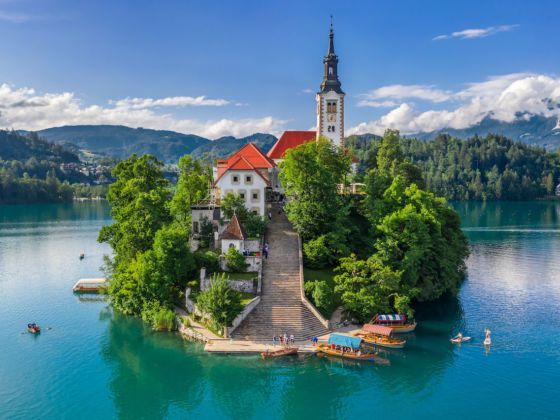On Thursday, May 14, the Slovenian government officially declared the end of its coronavirus epidemic and revealed plans to reopen borders. The announcement followed a two-week period of recording less than seven new cases per day. As travel resumes, incoming EU citizens will no longer be required to self-quarantine for a week. Non-EU nationals will still need to adhere to a 14-day self-isolation period, with the exception of politicians, diplomats, and workers transporting cargo.

Slovenia Is the First Country in the European Union to End Its Epidemic
The central European country, with a population of two million, formally declared a state of epidemic on March 12, reported Reuters, and recorded a total of 1,464 COVID-19 cases and 103 deaths over the last two months.
“Slovenia has tamed the epidemic over the past two months…Today Slovenia has the best epidemiologic picture in Europe,” Prime Minister Janez Janša said in parliament on Thursday. During the reopening process following Janša’s announcement, safety guidelines will still need to be observed, although he did not specify the requirements. So far, social distancing practices such as standing six feet apart and wearing face coverings indoors have been enforced.
The formal end of Slovenia’s epidemic will result in a stop to the financial aid distributed to citizens and businesses in need. This is projected to take place at the end of May. As the country moves toward easing the restrictions that were put in place on April 20, public transportation and schools will slowly resume, and hotels with 30 rooms or less will be allowed to operate.
Being the first European country to record a single-digit number of new infections for 14 consecutive days, Slovenia serves as a hope for the rest of the continent. A successful end to the pandemic means that Europe can potentially salvage some of the tourist season and ease the burden on many hard-hit businesses, making the June 15 deadline for EU border openings much more realistic.